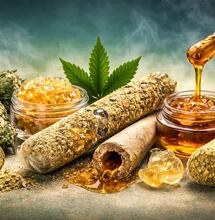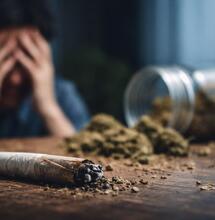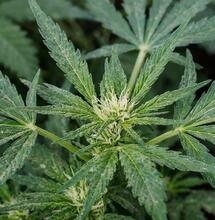Does Weed Feel Different with Age?

People can experience weed in many different ways. The effects can range from laughing out loud like crazy, feeling easy and relieved, getting very hungry very soon, or very sleepy very soon, couch-locked, too stoned to move a toe, or you name it. However, as we get old and after we've smoked tons of weed over the years, our most common reactions might start to change.
Many users report that smoking weed affects them differently over the course of years. For some nothing changes, while others see that the panic attacks that occurred to them occasionally in the first few years of consumption have now completely disappeared, or instead of usually being lethargic some users become more energized or more talkative, and so on and so forth. The changes that people experience in their reactions to marijuana can be both positive and negative.
The most common change is the simple increase in THC tolerance, which generally leads to less intense effects. Tolerance is the result of withdrawal of cannabinoid receptors around the body. With too much exposure to THC, these receptors, which are part of the body's endocannabinoid system, they begin to "avoid" interactions with the THC in the bloodstream. Alternatively, tolerance can also lead to more anxiety as neutralized receptors jeopardize the work of the endocannabinoid system and the result is disbalance.
When people become less nervous about weed over time, when they do become more relaxed about using it, it's often because they're less anxious about cannabis itself. It simply means you've become so used to it. You are more familiar with weed and behind you are the many years of experience in using it, so you basically know what to do in every single situation, you know every single hack, including what to do when you smoke too much or when you green out.
There are also a number of other factors, such as diet, exposure to stress, exercise, or the person's physical and mental well-being, that could alter the brain receptors in the endocannabinoid system, and this is followed by a change in how the compounds of cannabis are processed by the system.
A changed reaction could possibly also reflect personal expectations from using weed. A lot of users in the beginning take it for fun, to just sit down and be goofy. Over time people build more structure around smoking, such as taking it for better sleep once they discover this nice therapeutic effect from cannabis or taking it for relaxation when the days are stressful. Still, more stress, in some cases, could make cannabis backfire. Instead of more sleep, getting less sleep; instead of calming down, becoming even more nervous than before, etc.
Last but not least, it could simply be the weed itself. A degraded product will generate less of the anticipated reactions. The medicinal chemicals found in cannabis could vary with each batch, it's possible that the buds are contaminated, or the weed is past its prime, there could be loss of cannabinoids or terpenes, etc.
In order to manage a consistent experience with cannabis, one that hopefully remains positive, it's good to detox (pause use from time to time), microdose (avoid smoking or eating all at once), and target products for specific uses (for example, opt for CBD oils if you are treating troubled sleep).
When you are using a new product, a new flower for example, and you don't know yet the effects from it, it's always good to take a small dose and wait to see what happens in the next half an hour. If it feels strong, you might not need that much after all. It's also good to be mindful around cannabis use. In other words, ask yourself whether you always need to smoke and whether you are in a good mood or a good place to smoke so that you can enjoy the weed and take the effect you really want from it.











